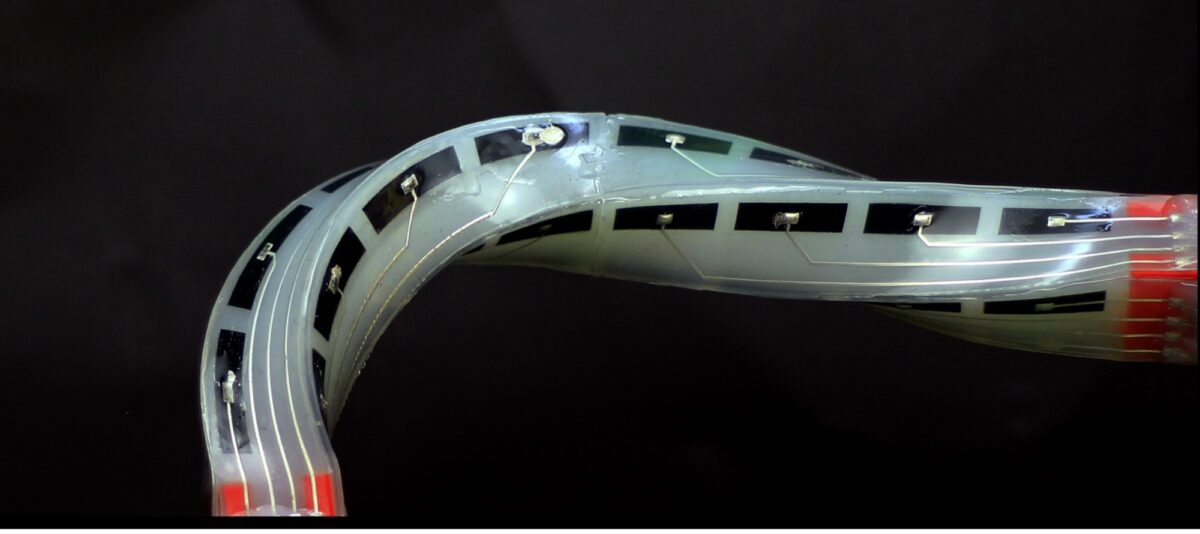
A team of scientists has developed smart electronic skin that could pave the way for soft, flexible robotic devices to assist with surgical procedures or aid people’s mobility.
Edinburgh researchers say their stretchable e-skin gives robots for the first time a level of physical self-awareness similar to that of people and animals.
The technology could aid breakthroughs in soft robotics by enabling devices to detect precisely their movement in the most sensitive of surroundings.
Applications of soft robots
Soft robots – which are made of pliable materials rather than metal or hard plastic – with e-skin could have a range of applications, including as surgical tools, prosthetics and devices to explore hazardous environments.
Unlike traditional rigid robots, which have a set range of movements, soft robots are highly flexible. This poses a major challenge to developing the sensing systems that are essential for robots to carry out precise tasks and interact safely with people and the environment, researchers say.
Without effective proprioception technology that can sense 3D shapes, it is hard for soft robots to understand their own speed, shape and weight and how these qualities interact with its environment.
Superior sensing
The University of Edinburgh team, working with the University’s commercialisation service, Edinburgh Innovations (EI), has developed a proprietary technology that overcomes this problem and provides soft robots with highly accurate, real-time sensing abilities.
Dr Yunjie Yang, of the University of Edinburgh’s School of Engineering, who led the study, said:
The perceptive senses endowed to robotic devices by this new technology are similar to those of people and animals. This new level of physical self-awareness represents a step change in the sensing capabilities of soft robots. ”
Researchers created a flexible e-skin made of a thin layer of silicone embedded with wires and sensitive detectors. Using the e-skin – which is just 1mm thick – in combination with artificial intelligence software, researchers were able to give soft robots the ability to sense things only millimetres away, in all directions, very quickly.
Device flexibility
The team tested their e-skin by fitting it to a soft robot arm. They found that the technology was able to sense a range of complex bending, stretching and twisting movements across every part of the device.
The flexibility and size of the technology mean it could be applied to almost any type of soft robot to enable it to accurately perceive its own shape and movements.
Study co-leader Dr Francesco Giorgio-Serchi, also of the School of Engineering, said:
The flexibility of the technology we have developed means it could be applied to various soft robots to enable them to accurately perceive their own shape and movements. Ultimately, that means we are now closer to making some of the most exciting ideas in soft robotics a reality. ”
Dr John Lonsdale, Head of Enterprise at EI, whose team is helping the researchers protect and commercialise the technology, said:
EI is very proud to be supporting this exciting, cutting-edge innovation, with potential in healthcare applications and beyond. We would be happy to discuss further with prospective partners interested in commercialisation. "
Related links


